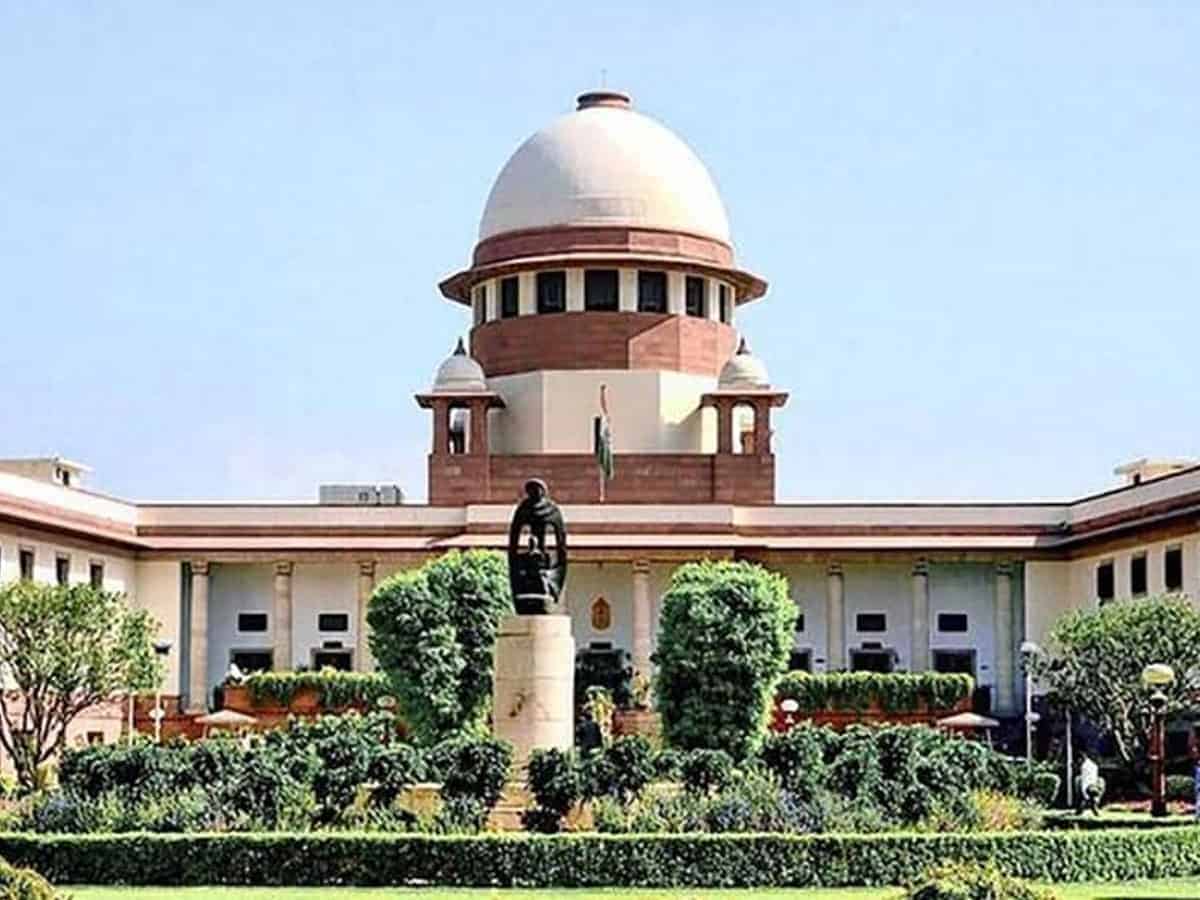
New Delhi: The Centre on Friday told the Supreme Court that the electoral bonds scheme is an absolutely transparent mode of political funding.
Solicitor General Tushar Mehta, representing the Centre, submitted before a bench comprising Justices B.R. Gavai and B.V. Nagarathna that the methodology of receiving money is transparent, and emphasized that nothing is black now, rather everything is transparent.
The bench queried Mehta, “does the system provide information where the money is coming from?”, Mehta said “absolutely!”
Advocate Prashant Bhushan, representing one of the petitioners, said this is a very interconnected issue which affects the democracy — one is electoral bonds issue and the other is whether political parties can come under RTI. Bhushan added that anybody can get foreign money by virtue of this and queried, can this be done through a money bill?
Senior advocate Kapil Sibal, representing a petitioner, submitted that he has a suggestion, since this is an important issue, it could be heard by a larger bench.
The bench asked the Centre’s counsel for views on referring the matter to a larger bench. The petitioners’ counsel said the matter should be heard as early as possible, as state elections are coming up in Himachal Pradesh and Gujarat. Mehta said this is not an election related issue. Bhushan said just before every state election electoral bonds were issued.
After hearing submissions from the counsel, the bench scheduled the matter for hearing on December 6.
The top court was hearing a batch of five petitions led by NGO Association for Democratic Reforms (ADR), that have challenged the validity of the Centre’s electoral bonds scheme as a source of political funding. The matter came up for hearing after a gap of more than 18 months.
The apex court, in March 2021, declined to entertain two stay applications moved by ADR to stop the sale of the electoral bonds ahead of elections in West Bengal, Tamil Nadu, Assam, Kerala and Puducherry.
The top court had noted that there was no justification to block sale of electoral bonds over concerns of anonymity in political party funding or apprehensions of their misuse.
In April 2019, the apex court directed all political parties to submit details of receipts of the electoral bonds to the Election Commission of India (ECI) in a sealed cover. The top court had tagged petitions by CPI-M and advocate Ashwini Upadhyay, with the ADR petition, which have also raised issues in connection with electoral bonds.



